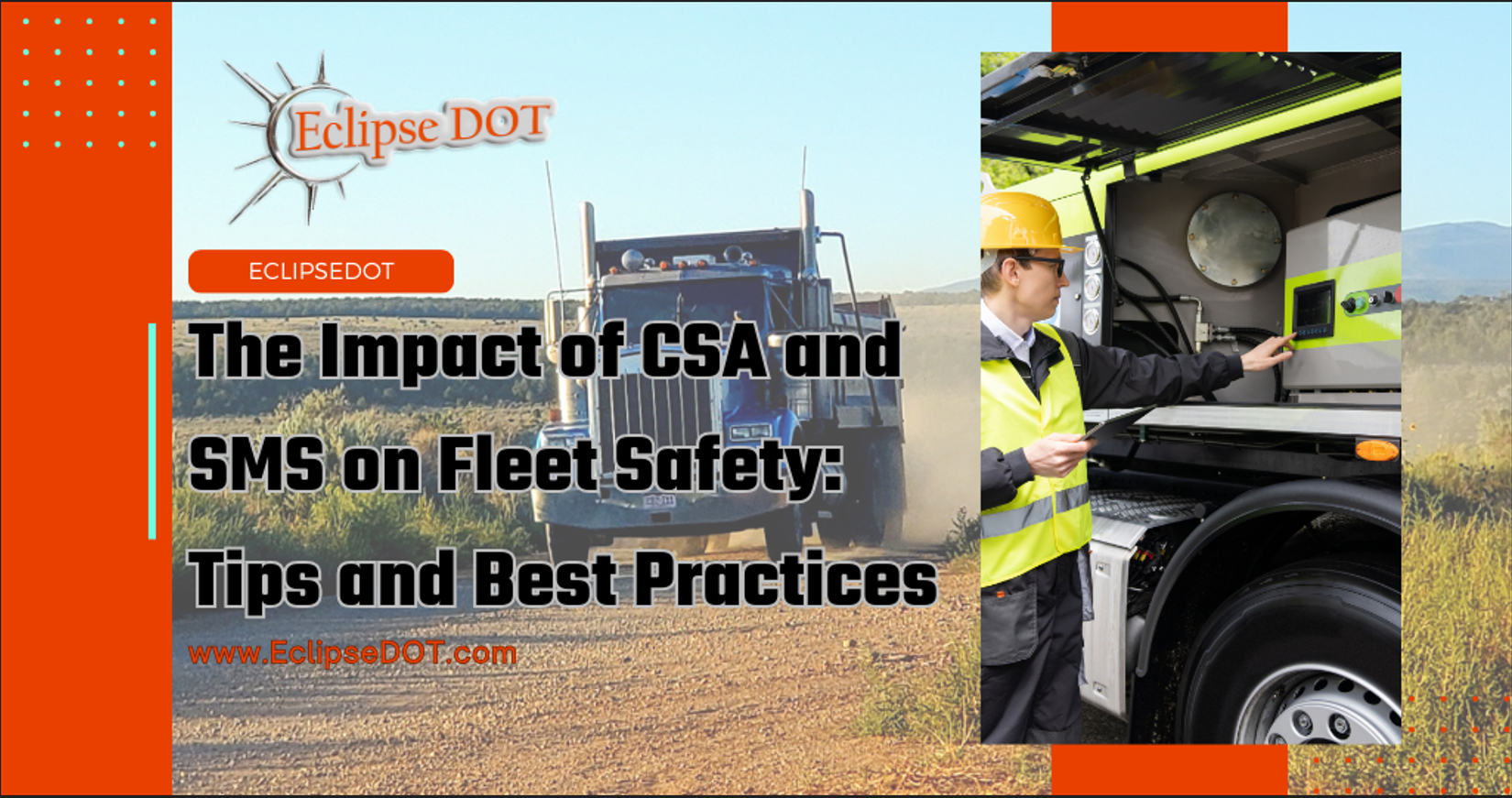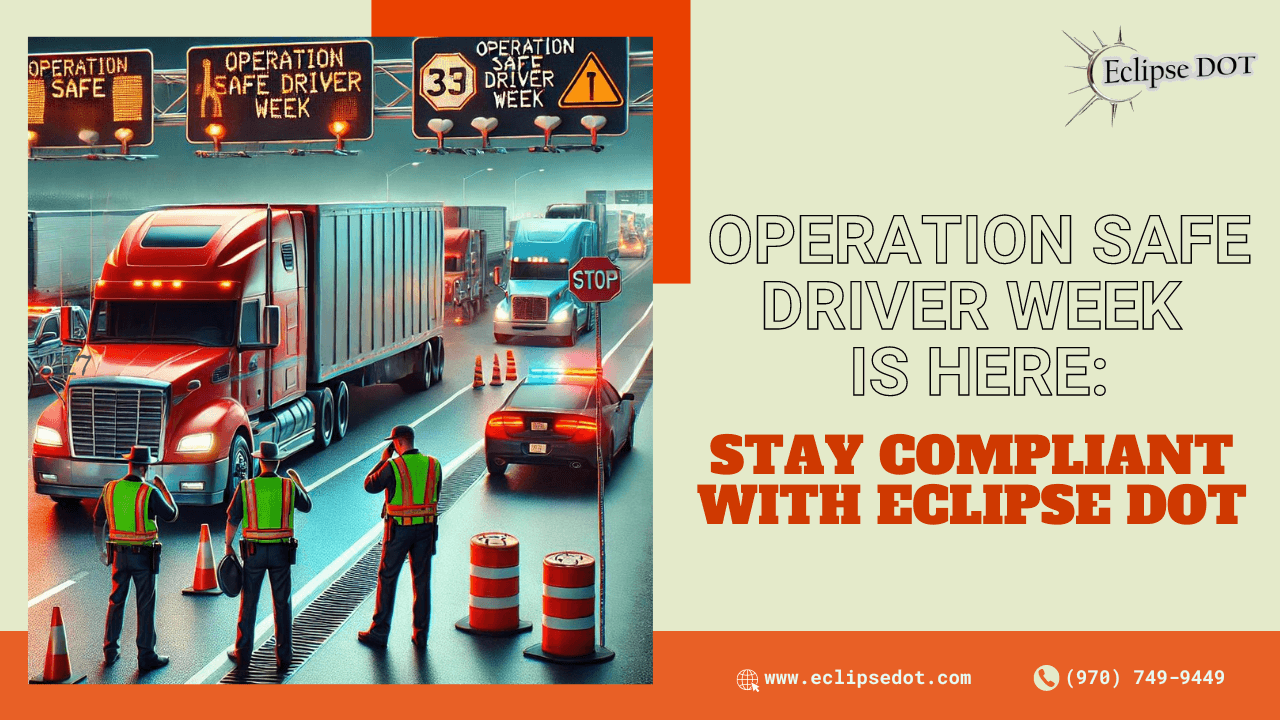We recently shared insights into fleet safety and its importance to your business. Safety is crucial not only for your business but for everyone on the road, including your drivers.
Understanding CSA and SMS: Unveiling the Essentials
We wanted to provide some insights and tips on understanding CSA and SMS, two pivotal components of modern fleet management. Our goal is to inform and educate you and your drivers on Compliance, Safety, Accountability (CSA), and its partner, the Safety Measurement System (SMS), and unravel why these two are essential for safety and compliance.
CSA Overview: Developed by the Federal Motor Carrier Safety Administration (FMCSA), CSA aims to evaluate and enhance the safety standards of commercial fleets. It dissects your fleet’s performance into seven distinct categories, commonly referred to as BASICs (Behavior Analysis and Safety Improvement Categories). These categories encompass critical aspects such as unsafe driving practices, compliance with hours-of-service regulations, and vehicle maintenance.
SMS Overview: Picture SMS as the loyal companion of CSA, diligently processing data and statistics to give you a panoramic view of your fleet’s safety performance. It compiles data from various sources, including inspections, violations, and collision reports.
Importance of CSA and SMS: These systems ensure your fleet operates safely on the road and that your drivers remain compliant. One violation could trigger an audit, which we want to help you avoid.
Best Practices for Nurturing Pristine CSA Scores
We’re going to share some actionable strategies for refining those CSA scores to help you maintain a clean record and stay compliant.
- Cultivate a Culture of Safety: Invest in training programs, foster transparent channels for discussing safety concerns, and create an environment free of blame for reporting near misses.
- Maintain Your Fleet: Implement proactive maintenance schedules, use cutting-edge technology for real-time monitoring of vehicle health, and ensure your fleet receives the care it deserves.
- Monitor Driver Performance: Use telematics and onboard recording devices to track driving behavior. Provide constructive feedback and personalized coaching to empower your drivers towards safer hauls.
- Keep Accurate Records: Ensure your drivers follow HOS regulations and maintain their vehicles properly. Keep all records up-to-date and accessible to your team. If managing records is overwhelming, consider seeking external help.
Staying Vigilant in the Regulatory Landscape
Compliance with the FMCSA is critical. Follow regulatory updates, participate in industry forums, and fortify your team with robust compliance strategies. Don’t hesitate to enlist the support of industry veterans and seasoned consultants. Their expertise ensures your fleet stays on the right side of the legal spectrum. Our team of DOT experts can assist with DQ files, MVRs, vehicle maintenance logs, drug testing programs, and more.
Always Remain Safe
In conclusion, CSA and SMS aren’t just industry buzzwords; they are the roadmap to fleet safety. By internalizing these systems and implementing best practices, you’re championing the well-being of your drivers and safeguarding your fleet’s reputation.
Remember, the journey is as significant as the destination, and it’s on us to ensure that everyone stays safe on and off the road.
Want to work with a team of dedicated DOT experts to help you stay compliant? Contact us today and we can help get you started on the path to compliance and staying out of the crosshairs of the FMCSA.
Discover our CDL & DOT Compliance blog for an exclusive trial at DOTDocs.com. Also, claim your FREE micro audit at THE ECLIPSE DOT MICRO AUDIT. Ready for smoother operations?






One thought on “The Impact of CSA and SMS on Fleet Safety: Tips and Best Practices”
As soon as I detected this website I went on reddit to share some of the love with them.
Escape rooms hub